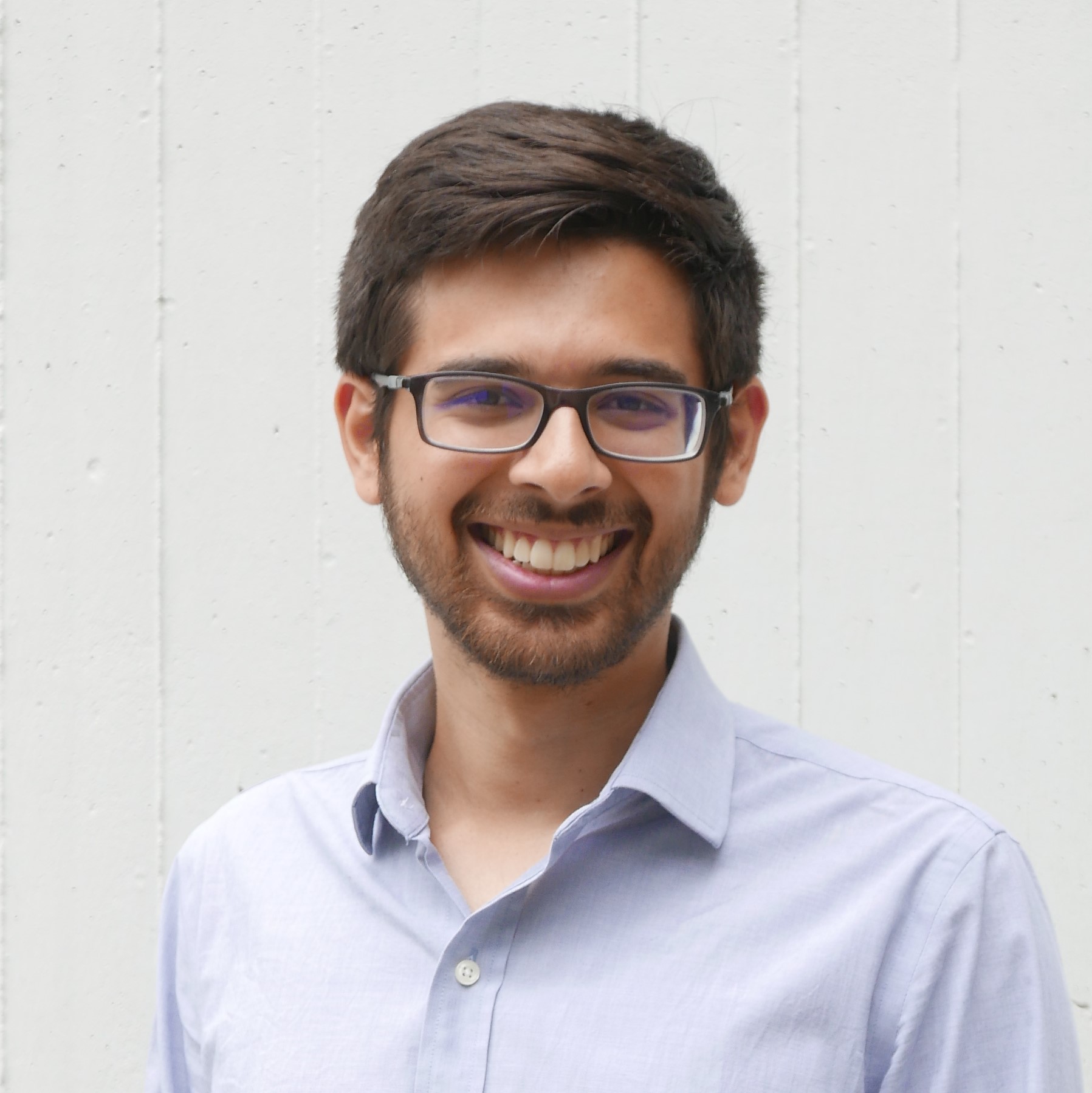Lectures
You can download the lectures here. We will try to upload lectures prior to their corresponding classes. As you’ll see, the beginning slides roughly follow and adapt slides from the following course: https://avehtari.github.io/BDA_course_Aalto/.
-
 Lecture 1 - Course Introduction
Lecture 1 - Course Introduction
tl;dr: Course introduction.
[slides]
Optional resources
- Videos 1.1 + 1.2
-
 Lecture 2 -- Bayesian analysis introduction – single parameter models
Lecture 2 -- Bayesian analysis introduction – single parameter models
tl;dr: Intro to bayesian analysis
[slides]
Recommended resources
- Video 2.1 starting 16:00
Book Chapters
- BDA 1-3
-
 Lecture 3 -- Priors, multivariate models, regression
Lecture 3 -- Priors, multivariate models, regression
tl;dr: More on bayesian inference
[slides]
Optional resources
- Video 2.2 extra (notes on notation)
Recommended resources
- Video 2.2
- Video 3
- Stan user guide on regression
Book Chapters
- BDA 1-3
-
 Guest Lecture 1 -- Brandon Stewart
Guest Lecture 1 -- Brandon Stewart
tl;dr: What Is Your Estimand? Defining the Target Quantity Connects Statistical Evidence to Theory
Title: What Is Your Estimand? Defining the Target Quantity Connects Statistical Evidence to Theory
Authors: Ian Lundberg, Rebecca Johnson, and Brandon M. Stewart
abstract: We make only one point in this article. Every quantitative study must be able to answer the question: what is your estimand? The estimand is the target quantity—the purpose of the statistical analysis. Much attention is already placed on how to do estimation; a similar degree of care should be given to defining the thing we are estimating. We advocate that authors state the central quantity of each analysis—the theoretical estimand—in precise terms that exist outside of any statistical model. In our framework, researchers do three things: (1) set a theoretical estimand, clearly connecting this quantity to theory; (2) link to an empirical estimand, which is informative about the theoretical estimand under some identification assumptions; and (3) learn from data. Adding precise estimands to research practice expands the space of theoretical questions, clarifies how evidence can speak to those questions, and unlocks new tools for estimation. By grounding all three steps in a precise statement of the target quantity, our framework connects statistical evidence to theory.
bio: Brandon Stewart is Associate Professor of Sociology at Princeton University where he is also affiliated with the Politics Department, the Office of Population Research, the Princeton Institute for Computational Science and Engineering, The Center for Information Technology Policy, the Center for Statistics and Machine Learning, and the Center for the Digital Humanities. He develops new quantitative statistical methods for applications across computational social science. Along with Justin Grimmer and Molly Roberts, he is the author of the 2022 book Text as Data: A New Framework for Machine Learning and the Social Sciences.
-
 Lecture 4 -- How are Bayesian models fit? Part 1
Lecture 4 -- How are Bayesian models fit? Part 1
tl;dr: uniform sampling, rejection sampling, intuition
[slides]
Recommended resources
- Video 4.1 and 4.2 (Most of 4.1, and 2nd half of 4.2 not covered in class)
Book Chapters
- BDA chapter 10
-
 Lecture 5 -- How are Bayesian models fit? Part 2
Lecture 5 -- How are Bayesian models fit? Part 2
tl;dr: MCMC, Gibbs, HMC, etc
[slides]
Optional resources
- Video 5.1 introduction (reminder what a Markov Chain is, highly recommended if you don’t know)
- A conceptual introduction to Hamiltonian Monte Carlo, by Michael Betancourt
- MCMC diagnostics explanations, as implemented in Stan, by Michael Betancourt
Book Chapters
- BDA chapter 11
-
 Lecture 6 -- Fancier models
Lecture 6 -- Fancier models
tl;dr: Hierarchical models, spatial models, Debugging, Bayesian workflow
[notebook]
-
 Guest Lecture -- Emma Pierson
Guest Lecture -- Emma Pierson
tl;dr:
- A large-scale analysis of racial disparities in police stops across the United States
- Fast Threshold Tests for Detecting Discrimination
- Stan code
Bio: Emma Pierson is an assistant professor of computer science at the Jacobs Technion-Cornell Institute at Cornell Tech and the Technion, and a computer science field member at Cornell University. She holds a secondary joint appointment as an Assistant Professor of Population Health Sciences at Weill Cornell Medical College. She develops data science and machine learning methods to study inequality and healthcare. Her work has been recognized by best paper, poster, and talk awards, an NSF CAREER award, a Rhodes Scholarship, Hertz Fellowship, Rising Star in EECS, MIT Technology Review 35 Innovators Under 35, and Forbes 30 Under 30 in Science. Her research has been published at venues including ICML, KDD, WWW, Nature, and Nature Medicine, and she has also written for The New York Times, FiveThirtyEight, Wired, and various other publications.
-
Student paper presentation preparation meetings
tl;dr: Student paper presentation preparation meetings
Come to class prepared in your teams, having read your chosen paper and with a tentative plan for what you’ll present and plot you’ll try to replicate.
-
No class -- February break
tl;dr: No class -- February break
-
 Lecture 8 -- Fancier models 3
Lecture 8 -- Fancier models 3
tl;dr: Hierarchical modeling, Bayesian meta-analysis
-
 Lecture 9 -- Fancier models 4
Lecture 9 -- Fancier models 4
tl;dr: Stan advanced tricks, Poisson regression, zero inflation, etc
-
Student paper presentation
tl;dr: Student paper presentation
-
 Guest Lecture -- G. Elliott Morris
Guest Lecture -- G. Elliott Morris
tl;dr:
Suggested reading
Optional reading
- Introduction to MRP
- Strength in Numbers: How Polls Work and Why We Need Them, By G. Elliott Morris (Ch 5 and 6 most relevant)
-
Student paper presentation
tl;dr: Student paper presentation
-
Project preparation meetings with Nikhil
tl;dr: Project preparation meetings with Nikhil
-
Project proposal presentation
tl;dr: Project proposal presentation
-
Student paper presentation
tl;dr: Student paper presentation
-
Student paper presentation
tl;dr: Student paper presentation
-
No class -- Spring break
tl;dr: No class -- Spring break
-
No class -- Spring break
tl;dr: No class -- Spring break
-
 Guest Lecture -- Bryan Wilder
Guest Lecture -- Bryan Wilder
tl;dr:
-
Student paper presentation
tl;dr: Student paper presentation
-
Student paper presentation
tl;dr: Student paper presentation
-
Student project presentation
tl;dr: Student project presentation
-
Student project presentation
tl;dr: Student project presentation
-
Student project presentation
tl;dr: Student project presentation
-
Student project presentation
tl;dr: Student project presentation
